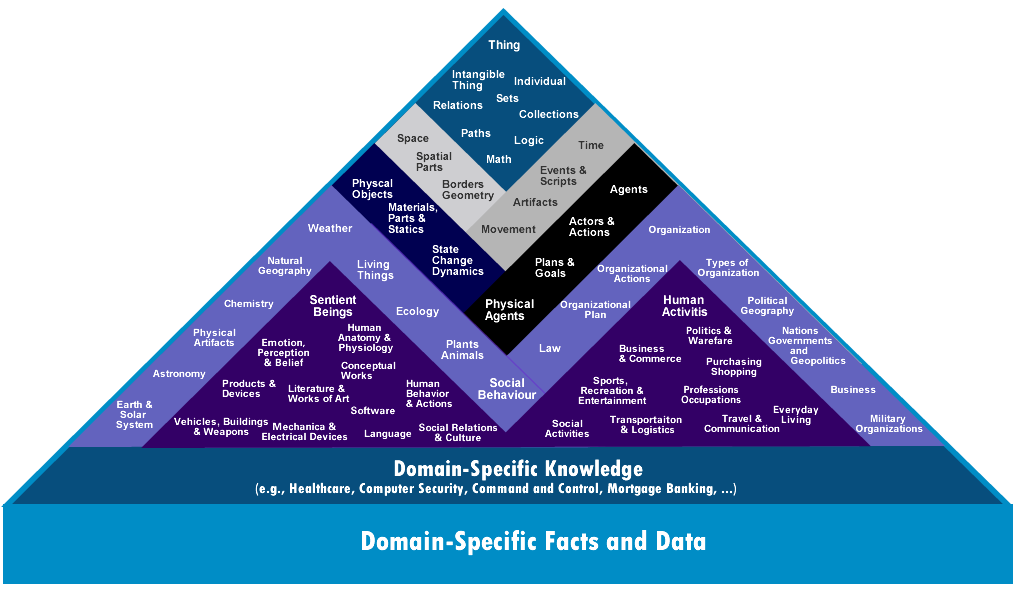Of course different arguments can be neatly spelled out in logical symbols, but logic isn't sufficient for all kinds of knowledge.
I know the issue is represented in different ontologies in the world of computer sciences (very different from the meaning within philosophy), but even ontologies have their drawbacks. What other approaches are there to describing in a meaningful way different kind of knowledge, like knowhow and tacit knowledge.
For example, as an ornithologist, I can easily recognize a bird just by its silhouette, its call, or it position in a tree -- but I'm not sure exactly what combination of features is relevant. Even if it's just its call, I'm not sure what features of the call are salient to be used by the identification process. This knowledge is all tacit, gathered during my years of birdwatching. If I wanted to build an imaginary "bird recognizer" that recognizes birds with the same accuracy that I have, I'm not sure what sort of knowledge representation one could use.
Thanks!

